As the Biden administration takes the reigns of U.S. government, Taiwan’s leaders will have to navigate the partisan posturing and security risks from U.S. policymakers while seeking to strengthen the substance of the US-Taiwan relationship along pragmatic and bipartisan lines. This piece originally appeared in the Taipei Times.
Taiwan’s leaders have had to navigate complicated political terrain in the US-Taiwan relationship in recent weeks. During the closing days of the Trump administration, Taiwan’s leaders had to decide whether to receive an official visit from the US Ambassador to the United Nations, how to respond to Secretary Pompeo’s announcement of the termination of restrictions on US government contacts with Taiwan officials, and how to deal with the public release of the United States’ previously classified Indo-Pacific strategy.
Taiwan’s decisions were complicated by American officials’ framing of their support for Taiwan as the flip side of their opposition to Chinese behavior. Former Trump administration officials argued to me and others that if Beijing harms America’s interests or values, such as in Hong Kong, then the US is justified in hitting Beijing back where it hurts, including on Taiwan.
Former Trump administration officials viewed such steps as mostly cost-free, judging that Beijing’s bark was worse than its bite. They calculated that Beijing would understand the connection between their actions and American responses with Taiwan, and over time, would grudgingly tolerate American policy shifts, so long as Washington stopped short of formal diplomatic relations or recognition of Taiwan as a de jure independent state.
Such judgments reflected a callous disregard of the fact that Taiwan — not the United States — typically bears the brunt of Chinese retaliation on cross-Strait developments. Beijing simply has more tools to impose costs on Taipei than on Washington and is more comfortable using them. In so doing, Beijing seems not to recognize that it is undermining its own objective of pulling Taiwan closer. With each act of bullying, Beijing further poisons its appeal among the people of Taiwan.
These are not just academic observations about the interplay between the United States, Taiwan, and China. Indeed, Taiwan officials will confront difficult judgments in the coming months and years on how best to respond to American expressions of support for Taiwan.
In the US Congress, there will be a continuing imperative for politicians to demonstrate toughness toward China. China increasingly will be used as a tool by ambitious politicians to burnish one’s image as a strong defender of America and American values.
A wave of public opinion polls in 2020 showed that Americans have broadly unfavorable views of China. This disapproval is bipartisan, but with higher intensity among Republican supporters. Even though China is not among the top ten issues that people identified for informing their voting decisions in the 2020 election, it is an issue upon which 2024 presidential aspirants seem to believe they can distinguish themselves and discredit their rivals. As a case in point, Senator Marco Rubio accused Biden administration nominees of being “soft on China” before they even had conducted a confirmation hearing, let alone made a single policy decision relating to China. There will be much more where that came from in the weeks and months to come.
As this rhetorical arms race on China heats up, so too will Congressional statements and symbolic legislation in support of Taiwan. Taiwan policymakers will need to decide whether to embrace and encourage such gestures, given the risk that doing so could invite a perception of cheering partisan statements that are in tension with the policies of the Biden administration, and the fact that most such gestures will have negligible influence on US policy.
Beyond the posturing and point-scoring on Capitol Hill, there will be a seasoned group of presidential advisors in the Biden administration that are committed to strengthening relations with Taiwan. President Biden and President Tsai (蔡英文) are not strangers to each other. Key policymakers such as Secretary of State Tony Blinken and National Security Council Coordinator for Indo-Pacific Affairs Kurt Campbell have dealt directly with Taiwan’s leaders before and have made important contributions to strengthening relations. They have largely done so quietly and outside the public eye. They do not view Taiwan as a convenient tool to burnish their anti-China credentials. They recognize that not all expressions of American support for Taiwan are helpful for Taiwan or healthy for US-Taiwan relations. They will want to look forward, not backward, to identify pragmatic ways to strengthen the relationship.
For example, I expect President Biden and his advisors will want to explore how to integrate Taiwan more fully into America’s Indo-Pacific strategy. They will be interested in identifying ways for Taiwan to contribute to strengthening democratic resilience in Asia and beyond. There will be interest in deepening technology policy coordination and enhancing supply chain security. They will want to pursue steps together to strengthen Taiwan’s economic and national security. They will recognize the importance of supporting Taiwan’s efforts to garner dignity and respect on the world stage.
President Tsai has shown steadiness and balance in her response to recent developments in US-Taiwan relations. Members of the Biden team will, with confidence, look to her to display those same attributes in the coming years as well. Such steady moderation will best protect bipartisan support for Taiwan in the United States and keep the focus on strengthening the substance of the US-Taiwan relationship.

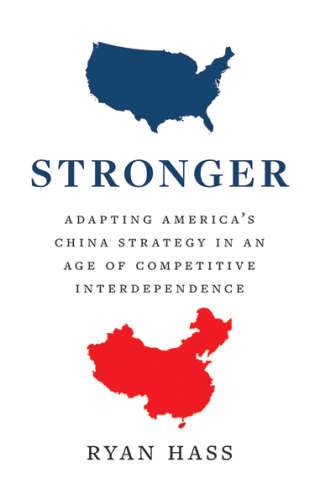
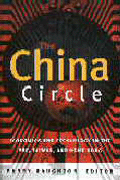
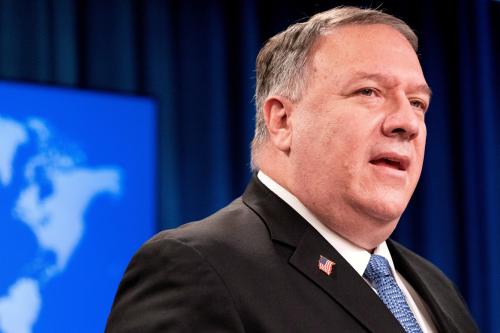
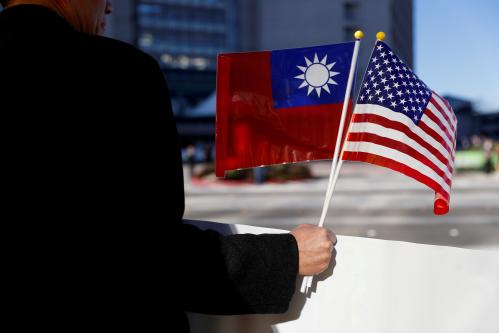
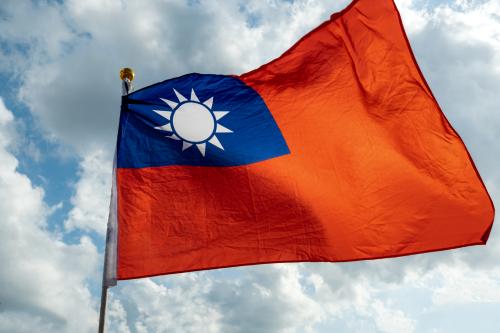



Commentary
The path to protecting bipartisan US support for Taiwan
January 25, 2021